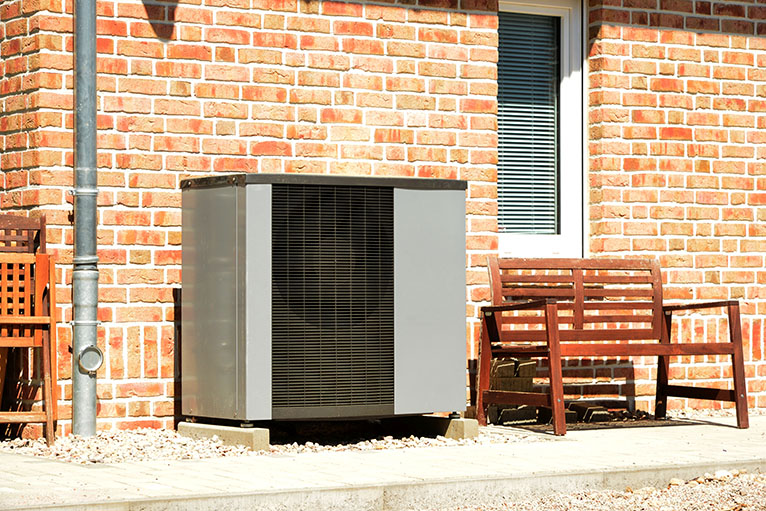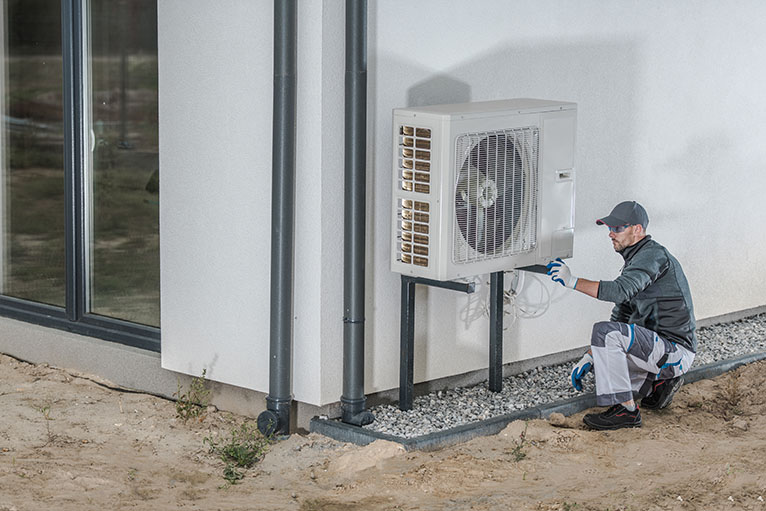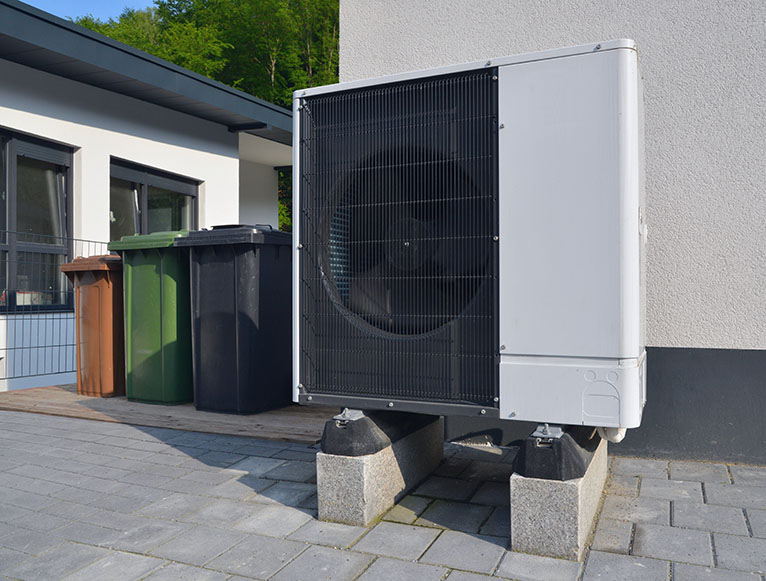Everything you need to know about heat pumps
Keeping our homes warm can be expensive, so it’s no surprise that many of us are looking for the top ways to save money on our heating bills. Heat pumps and other alternative heating systems can be more expensive to buy than a gas boiler, but they are more efficient and offer long term savings – making them a cheaper heating solution in the long run. Discover how heat pumps work and how they improve your home, below.
What is a heat pump?

A heat pump is a device that gathers heat from a source, such as heat in the soil, and moves it into your house. There are a few different types of heat pumps:
How an air source heat pump (ASHP) works
- Heat is absorbed from the air outside at a low temperature – as low as -15°C, according to the Energy Saving Trust.
- The heat is transferred into a fluid.
- The fluid goes through a compressor at a higher temperature.
- The heat is moved into the heating and hot water systems in your home.
One specific type of ASHP that’s popular in the UK is the air-to-water heat pump. Air-to-water heat pumps absorb heat from the air, and then transfer it into water. Then, the heat is spread around your home through a wet central heating system. This type of ASHP works at a lower temperature than a standard boiler system, meaning they’re cheaper to run and they lower your carbon emissions.
How a ground source heat pump (GSHP) works
- Heat is gathered from the ground through a loop of pipe containing a fluid made of water and antifreeze. This is called a ground loop, and it’s buried in your garden.
- The fluid goes through a heat exchanger and into the heat pump.
- The fluid is distributed into the radiators and hot water, underfloor or warm air heating systems in your home.
Read more about how ground source heat pumps work.
How a hybrid heat pump works
A hybrid heat pump consists of an air source heat pump and a gas or oil boiler. They’re particularly useful in properties where heat escapes at a high rate, such as older homes or those without insulation. In these homes, a heat pump may not be able to meet the heating needs on its own. This is because the heat they gather is often at a lower temperature compared to a gas boiler. So, a boiler can help to raise the temperature of the heat. But, as it’s working alongside a heat pump, you’ll still make savings on your heating bill and cut down on your carbon footprint.
How do heat pumps save you money?

In the average detached home with four bedrooms, an ASHP could save you up to £1,300 per year depending on the heating system you’re replacing, according to the Energy Saving Trust. Similarly, you could save up to £1,090 in the same sized home with a GSHP (Energy Saving Trust). Here’s how:
They work at a lower temperature. ASHPs work at a lower temperature than a standard boiler system. This means they’re cheaper to run and they also reduce your carbon emissions. Fossil fuel boilers produce heat that’s about 65-70°c, whilst ASHPs pump out heat at around 40°c, according to The Heating Hub.
They have a long lifespan. The Renewable Energy Hub found that heat pumps last for up to 50 years.
No more paying for fuel! With a heat pump, you don’t need any fuel deliveries because they run off natural heat.
How do heat pumps improve the quality of your home?

They improve the air quality. Heat pumps don’t burn anything to create heat, so no fumes are released into your home. Plus, they can remove dust and mould spores as they circulate air throughout your home.
They can reduce your carbon footprint. Heat pumps are renewable energy systems, so they don’t use fossil fuels. So, replacing an oil or gas boiler with a heat pump will reduce your carbon footprint.
They could make it more attractive to potential buyers. In the Rated People Home Improvement Trends Report: 2021, we found that 57% of UK residents want to be more eco-friendly in 2021. And, we also found that only 3% of homes currently have a heat pump. So, installing eco-friendly measures such as a heat pump could make your home look more attractive when it’s time to sell.
How much does it cost to install an air source or ground source heat pump?
According to research done for Rated People by TradesmenCosts.co.uk, an ASHP costs between £9,000 and £11,000 to install, whilst you can expect to pay about £14,000 to £19,000 to install a GSHP.
How to find ground source or air source heat pump engineers
Find an expert heat pump specialist near you, by posting your job on Rated People.





4 Comments